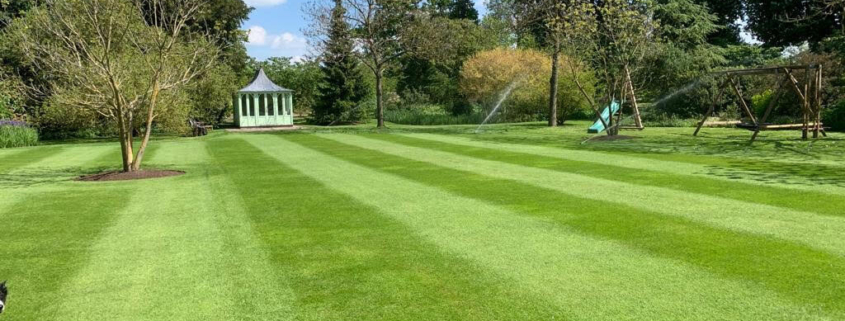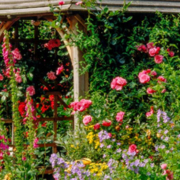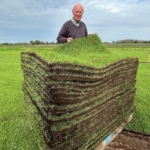Is the end of cylinder mown lawns in plain sight?
Is the end of cylinder mown lawns in plain sight?: David Hedges-Gower, Chairman of the Lawn Association asks the question…Is the end of cylinder mown lawns in plain sight?
The era of meticulously manicured cylinder-mown lawns may indeed be approaching a turning point. The notion of the quintessential Great British lawn, renowned globally, raises questions about its actual existence and what it represents. While there hasn’t been a world championship specifically dedicated to lawn care (that’s sarcasm if you hadn’t worked it out), one can speculate on the criteria such an event might involve, perhaps resembling a competition akin to the Ryder Cup between the US and Europe.

Is the end of cylinder mown lawns in plain sight?
The history of lawn maintenance traces back to the 1800s with the advent of cylinder mowers, notably pioneered by Edward Bunning’s invention of the first mechanical lawn mower. These early machines, designed with cylinders and bottom blades, provided a superior cut compared to today’s rotary-driven blade machines. They were versatile, capable of being powered by various means, including elephants or camels, earning them the nickname of a “green machine.”
Yet, when people suggest the concept of the quintessential British lawn, its precise definition remains elusive. Is it synonymous with the meticulously maintained courts of the Lawn Tennis Association, or the widespread use of carpet-like native grasses across the UK? We need a poll to determine where this perception came from.
Today, grass maintenance often assumes a commercial aspect, which unfortunately, often comes at an environmental cost. Practices involve the use of fossil fuels, polymer-coated fertilizers, and a range of chemicals to control anything unwanted. This approach extends to the care of cylinder-mown lawns, which often demand copious amounts of water, fertiliser, and chemicals to maintain their desired appearance (unless done sustainably)
However, the traditional British lawn is not without its flaws. Its upkeep, along with the widespread perception shaped by sporting arenas, contributes to a significant environmental footprint. To ensure the longevity of the quintessential British lawn, a revaluation of lawn care practices is imperative.
Presently, water restrictions are already in place, and there’s an ongoing trend toward banning certain chemicals while transitioning away from petroleum and polymer-based fertilisers. Can the quintessential British lawn endure these changes with cylinder mowers at the forefront? After all, is there anything wrong with a brown lawn for a few weeks a year? What is so special about a weed free surface in a domestic lawn? And if cylinder mowing attracts this kind of mentality, then maybe we need help?
The answer hinges on a substantial departure from conventional sports turf management methods and embracing more sustainable alternatives. Then, just then will the traditional lawn have a chance.
About the Lawn Association: The Lawn Association is a leading educational platform dedicated to promoting sustainable lawn care practices and dispelling common misconceptions within the industry. Through advocacy and education, the association seeks to foster environmental stewardship among lawn enthusiasts across the United Kingdom
For the latest industry news visit landscapingmatters.co.uk/news
Get all of the big headlines, pictures, opinions and videos on stories that matter to you.
Follow us on Twitter and Instagram for fun, fresh and engaging content.
You can also find us on Facebook for more of your must-see news, features, videos and pictures from Landscaping Matters












